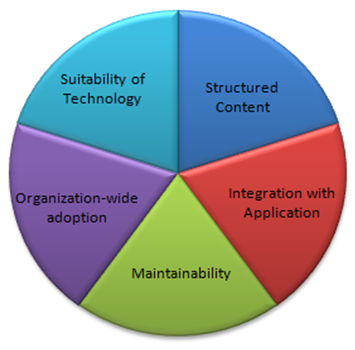Many projects that come to Drupal shops are failures, and it’s not a big surprise that most of them are due to poor decision making. Srijan, in one of its webinars, invited Kay VanValkenburgh, Chief Learning Officer at OwnSourcing, a Boston-based Drupal shop to talk about issues related to website success. Kay spoke about the need for business decisions to be thoroughly integrated with project development. You can catch a recording of the webinar here.
According to Kay, here are the 5 things that decision makers must know so they can derive the most out of Drupal.

Structured Content
One of the strongest abilities of Drupal is to create relationships. The opportunity to share data and make the content reusable requires the project team to have clarity about the intent of the content. With a well-structured content strategy, we get pieces of research that will form the number of relationships with multiple products. It also formulates the relationships between content and the projects it applies to. Hence, there is a strong requirement to have direct involvement of the C-suite because content defines how people are going to interact with the brand.
Integration
Making labels about what a piece of content should consist of and should do, and making those labels available to other applications that need to interact with it requires a strong understanding of content management systems and relationship management systems. So in order to understand integration, a deep understanding of processes and linking of web properties with those processes need to take place.
Maintainability
Maintainability sometimes takes a back seat when everyone talks about new features and development. Recognizing the importance of maintaining the upgrade path can help in prioritizing various concerns during the development process.
Adoption
Consideration of frequency of using the platform is generally left behind in the development stage. Recognition of each stakeholder who will use the platform is vital. Thus, assessing adoption from every angle is a key to post project deliverability.
Suitability
Not every CMS is the perfect fit for all projects so it is important to consider all approaches while assessing the best tool for your web product. One has to consider the roadmap. How easy is it to introduce or adopt new technology rapidly? Other parameters that need to be evaluated are features, architecture, development cycle, performance, security and community support.
Our Services
Customer Experience Management
- Content Management
- Marketing Automation
- Mobile Application Development
- Drupal Support and Maintanence
Enterprise Modernization, Platforms & Cloud
- Modernization Strategy
- API Management & Developer Portals
- Hybrid Cloud & Cloud Native Platforms
- Site Reliability Engineering




